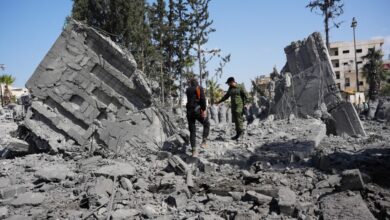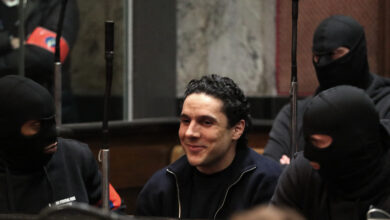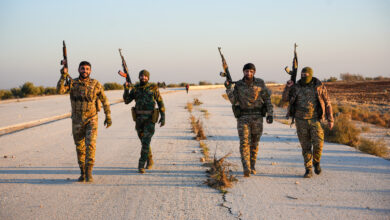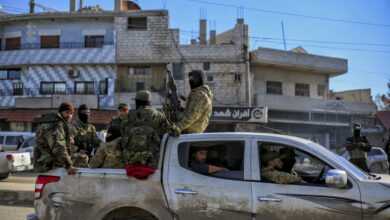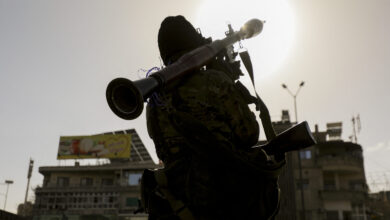Syrian government to rejoin Geneva talks on Sunday
GENEVA (AFP) – Syrian government negotiators will return to Geneva this weekend to rejoin United Nations-backed peace talks, after leaving the city in protest last week, the U.N. envoy said Thursday.
“The government has informed us that they would fly back to Geneva on Sunday the 10th of December,” U.N. mediator Staffan de Mistura told reporters, confirming information reported by the Syrian state news agency SANA.
The government delegation is scheduled to stay until December 15, when the eighth round of the faltering U.N.-brokered talks is due to wrap up.
The negotiations aimed at ending nearly seven years of bloodshed in Syria reopened last week.
The talks were halted over the weekend before resuming Tuesday, but without the government team headed by Syria’s U.N. ambassador Bashar al-Jaafari.
Jaafari had criticised the talks before his departure, saying there were “big problems in this round,” a reference to the opposition’s insistence on President Bashar al-Assad’s removal.
The opposition, united in one delegation for the first time, has so far defied calls to give up its demand that Assad step down before any peace deal can be reached.
Jaafari described that position as “provocative” and “irresponsible,” warning that “there will be no progress” if the opposition maintained its stance.
For several days, government sources had said officials were still deliberating whether they would come back to Geneva.
De Mistura has met with the opposition’s delegation in the meantime.
De Mistura said he expected both sides to “seriously engage” in negotiations next week, which will be focused on shaping a new Syrian constitution and organising UN-supervised elections.
He also issued a thinly veiled warning over a new diplomatic track being pushed by Syria’s key ally Russia, which has announced plans to host a new peace conference at the Black Sea resort of Sochi in coming months.
The opposition and Western diplomats are concerned that the Sochi meeting might be part of an effort by Moscow to circumvent the U.N. talks and impose a solution favourable to Assad.
“There are many initiatives that are being planned and can be planned in the future, but we shall assess the behaviour of both sides – government and opposition – in Geneva,” de Mistura said.
He underscored that the U.N. would be watching to see if these other initiatives were supportive of the UN talks, “or a sabotage.”
He warned that if one side was “de facto sabotaging the process and the progress of Geneva, that would have a very bad impact on any other political attempt to have processes elsewhere,” an apparent reference to the proposed Sochi meeting.



